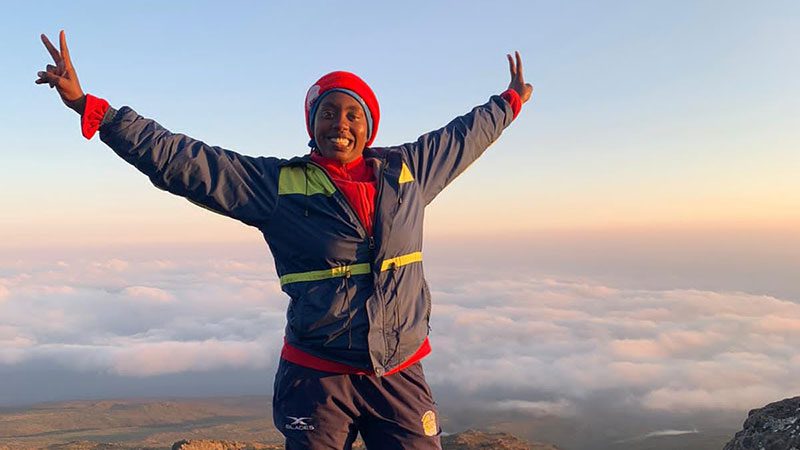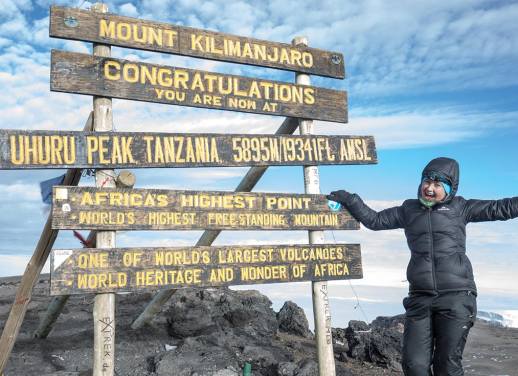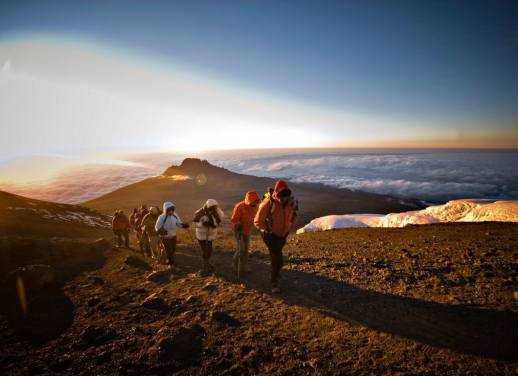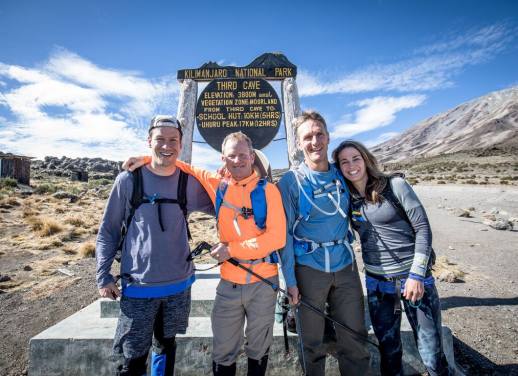Asifiwe Makere was 22 years old when she first climbed Mt Kilimanjaro in 2019 as an Intrepid porter. Now she’s a lead guide – one of the few in Tanzania – helping local women become financially independent and pursue their tourism dreams. There’s a big climb ahead. Literally.
In 2020, only 18% of people working on the heather-covered slopes of Mt Kilimanjaro in Tanzania were women. Ten years ago that number was zero. One of these women is the trailblazing Chagga tour leader, Asifiwe Makere.
“When I first said to my family, ‘I want to start climbing’, they were like, ‘Are you sure?’” Asifiwe recalls. “We don’t see many females around here who try to climb Kilimanjaro. Maybe because, in our village, you can go outside and actually see the mountain. But I told my family, ‘You know what? I’m sure. I’m sure I can do it.’”
Asifiwe grew up in Mosha, in the shadow of Africa’s tallest peak. In patrilineal tribes, like the Chagga, most women work in farming and agriculture – two professions that have become much more difficult, due to melting snow caps and the effects of climate change. Opportunities are scarce, which is why some Tanzanian women, like Asifiwe, are turning to traditionally male-dominated industries such as tourism.
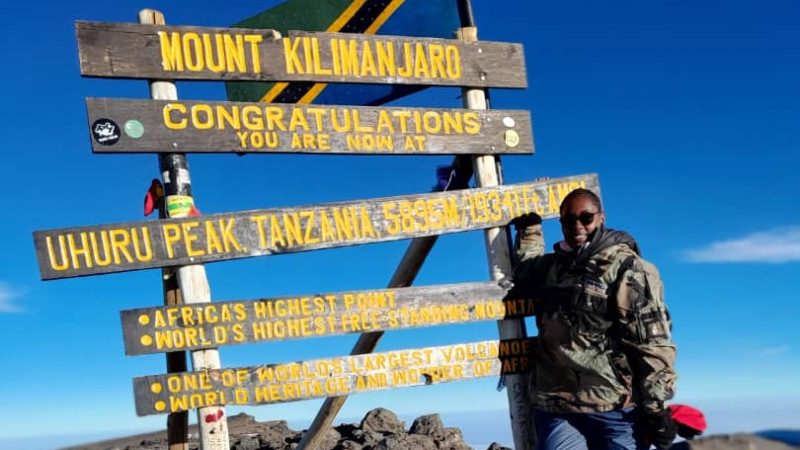
Still, it’s a long way from village life to the ‘rooftop of Africa’, 5895 metres above sea level. Asifiwe began her journey with a degree in wildlife management and guiding, then moved to the comparative bustle of Arusha (population: 414,000) with her younger sister. In 2019, she heard that Intrepid was looking for female porters and decided to apply.
“We’d gone out in person to recruit more women in hotel hotspots, but were having difficulty as we needed more real-life examples of success,” says Bosco Omondi, Intrepid’s local Operations Coordinator. “Then we heard of Asifiwe and her amazing drive; we just had to recruit her.”
“When I first started climbing, I was a porter, and it was not easy,” Asifiwe admits. “I had to carry 20 kilograms, and I’d never done that before. But I was like, ‘You know what? This mountain is hard, and I’m not going to give up. I want to show the mountain I can do it’.”
Asifiwe eventually made it to the top on that first climb, and joined Intrepid’s ranks as a full-time porter. Her legs ached for days after each ascent, and she had friends from other organisations lose fingers to frostbite (a real risk at that altitude, if you lack the proper gear and training). With the assistance of The Intrepid Foundation, and organisations like Kilimanjaro Porters Assistance Project, Asifiwe decided to soldier on. Her goal was to become the best lead guide in Tanzania, and after that, “the best lead guide in the world.”
Then, in 2020, COVID happened, and Tanzanian tourism more-or-less shut down overnight. Unemployment was a big problem for local communities. Some porters turned to gardening to feed their families, and for a while Asifiwe struggled along, selling shoes from a streetside stall in Arusha. Thankfully, travellers soon returned to Kilimanjaro, and in 2022 Asifiwe was offered a role as lead guide – a huge achievement in the gender-skewed world of Tanzanian trekking.
There’s a saying on Kilimanjaro. How do you climb such a massive mountain? Pole, pole. Slowly, slowly. And that’s pretty much how gender equality goes in Tanzania. Slowly, slowly. COVID-19 was a huge setback – in 2021, there were 13 million fewer employed women than in 2019 – but with each climb, and every tour, women like Asifiwe are helping to shift that needle. She’s climbed Kilimanjaro 35 times now, and in August 2022 led her second tour up the challenging Marangu route; this time with two new female porters, Selena Tarimo and Siana Msaki, by her side.
“I want to encourage younger women not to give up,” Asifiwe says. “Yes, the tourism industry is still hard for females, but it also provides freedom. I want to be a role model for up-and-coming guides, so I share my story with them, and they feel curious and inspired to know how things work. Many of them have become porters now.
“I want to show the world that women can do this. We can do the hard things men can do. This is our time.

